Projects
Professionalization
To the project browser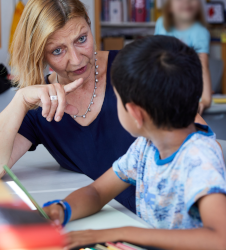
ViolAA
The project uses different methodological approaches (experimental vignette studies, ambulatory assessment and behavioural observations) to investigate teachers’ reactions to student misbehaviour at school.
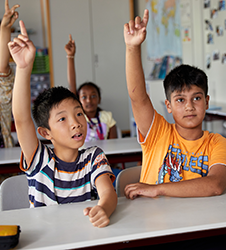
Strive-Up
The project examines the ideas parents of 6-10 year old children have about their child’s future social status (desire to maintain status vs. desire for upward mobility). We analyse to what extent the desire to maintain status vs. the desire for upward mobility differs according to socio-economic status (SES) and migration background, and what role this desire for status plays in parents’ educational aspirations and in the educational decisions made by families.

PACO
The PACO project investigated how families with schoolchildren adapt to different measures aimed at slowing the spread of the novel coronavirus. The focus was on the everyday experiences of parents in the period from the end of March to the end of April 2020.
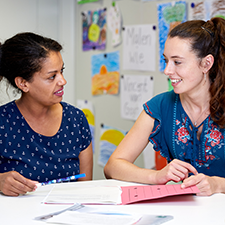
NO BIAS
The project aims to investigate the accuracy of judgement of trainee and experienced teachers. In particular, it focuses on the influence of stereotypes. Process data will be used to investigate teachers’ information processing and the influence of stereotypes on it, and to develop approaches to reduce the influence of stereotypes on judgements.

MuKi
Investigating emotional expectation and appraisal processes in children aged 8-12
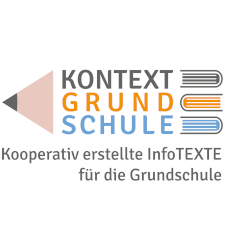
KONTEXT Grundschule
The “KONTEXT Grundschule” project is creating an information website for primary school teachers. Teachers and researchers are working together to produce information texts on current and practically relevant topics related to the promotion of low-achieving pupils.
GUIDEPREP
The Europe-wide project ‘Growing Up in Digital Europe’ (GUIDE) analyses the success factors for the development of well-being in a digital world. Over a period of about 25 years, two birth cohorts (infants and school-age children) and their parents will be systematically surveyed. The upstream project GUIDEPREP (‘GUIDE Preparatory Phase’) will develop the necessary research infrastructure for the GUIDE panel between 2022 and 2026.
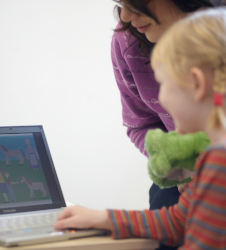
DigitLern
The DigitLern project aims to explore the opportunities and challenges of (digital) distance learning and teaching during the coronavirus pandemic for children and young people with learning difficulties.
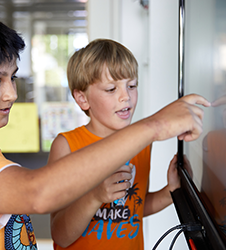
EABU
The research group aims to identify the causes of educational inequalities, analyse changes over time and identify the risks and opportunities of digitalization to reduce educational inequalities.
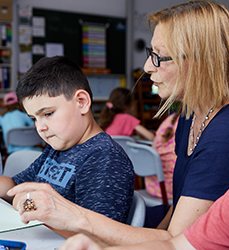
DiSeGel
The interdisciplinary network focuses on emotional violence by educational professionals towards children and young people. The network members examine how emotional violence as a phenomenon can be understood theoretically and dealt with empirically.